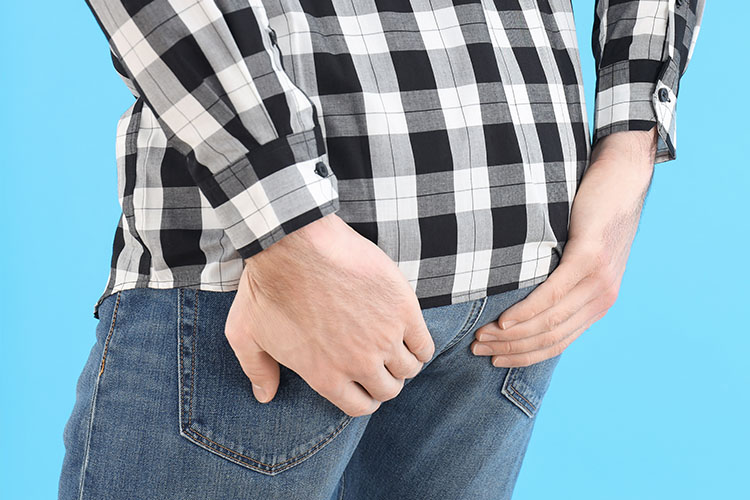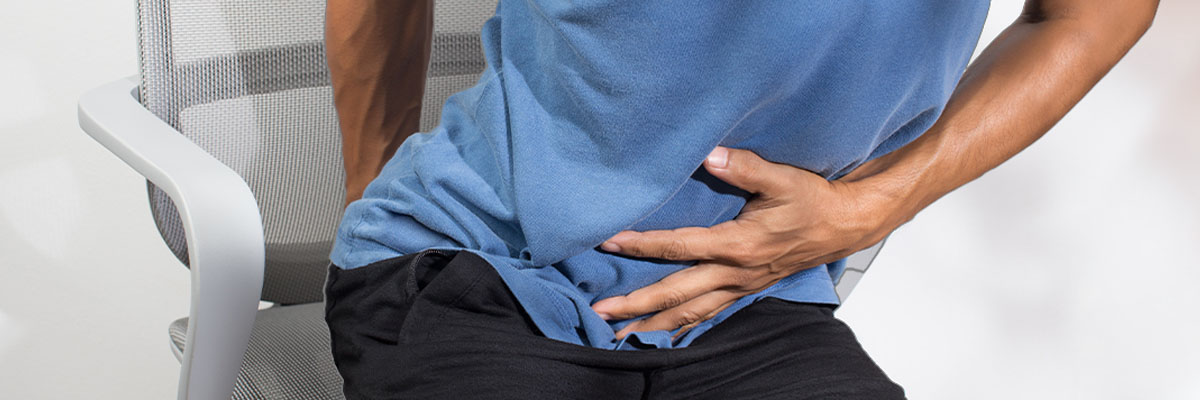Overview
Fecal incontinence, also known as bowel incontinence, is the inability to control bowel movements, leading to accidental leakage of stool. It can range from occasional leakage during gas release to a complete loss of bowel control. The condition is more common in older adults but can affect individuals of any age, depending on the underlying cause.
The effects of fecal incontinence can be physical, emotional, and social. Physically, it can cause skin irritation, discomfort, and even infections in the affected area. Emotionally, the condition often leads to embarrassment, anxiety, and depression, significantly impacting the quality of life. Socially, individuals may withdraw from activities due to fear of accidents, resulting in isolation and reduced overall well-being.
Treatment for fecal incontinence depends on its cause and severity. Non-invasive options include dietary changes, pelvic floor exercises, and medications to regulate bowel movements. For more severe cases, medical interventions like biofeedback therapy, sacral nerve stimulation, or surgical procedures may be necessary. Addressing the root cause, such as rectal prolapse or nerve damage, is essential for effective treatment.
While fecal incontinence can be challenging, many effective management strategies are available. Early consultation with a healthcare provider can help determine the best approach, improve symptoms, and restore confidence in daily life.
Table of Contents
When to See a Doctor
Fecal incontinence can significantly affect a person’s quality of life, and it is important to seek medical advice when the condition becomes disruptive or causes additional health concerns. Early consultation can help identify underlying causes and initiate effective treatment to improve symptoms.

Signs to see a doctor:
- The condition affects daily life. If fecal incontinence limits your ability to engage in normal activities, such as work, social gatherings, or exercise, it’s time to seek professional help.
- There is persistent or worsening stool leakage. Frequent or increasing episodes of incontinence may indicate an underlying issue, such as muscle or nerve damage, that needs medical evaluation.
- You experience accompanying symptoms. Symptoms like abdominal pain, rectal bleeding, or changes in stool consistency may suggest digestive disorders, infections, or structural abnormalities requiring further investigation.
- Home remedies and self-care are ineffective. If dietary changes, over-the-counter medications, or pelvic floor exercises fail to improve the condition, professional guidance is necessary to explore advanced treatments.
- There is emotional or mental distress. Feelings of embarrassment, anxiety, or depression related to incontinence are valid reasons to consult a healthcare provider who can recommend both medical and psychological support.
Seeking medical attention promptly can lead to a proper diagnosis and an effective management plan, improving both physical symptoms and overall well-being.
What Type of Doctor to Seek
If you are experiencing fecal incontinence, the first step is to consult a primary care physician. They can evaluate your symptoms, identify potential causes, and recommend initial treatments or lifestyle adjustments. Depending on the findings, they may refer you to a specialist for more in-depth evaluation and care.
Gastroenterologists specialize in digestive system disorders and are commonly consulted for fecal incontinence related to conditions like irritable bowel syndrome (IBS), inflammatory bowel disease (IBD), or rectal dysfunction. Colorectal surgeons may be involved if surgical intervention is required, such as repairing rectal prolapse or damaged sphincter muscles. For incontinence related to weakened pelvic floor muscles, a urogynecologist or a physical therapist specializing in pelvic floor therapy may provide targeted care. Seeking the right specialist ensures comprehensive treatment and better management of the condition.
What to Expect from Your Visit to a Doctor
When visiting a doctor for fecal incontinence, the appointment will begin with a detailed discussion of your symptoms, medical history, and lifestyle. Be prepared to describe the frequency and severity of accidents, any dietary habits, and associated symptoms like abdominal pain or changes in stool consistency. The doctor may also ask about any prior surgeries, childbirth history, or chronic conditions that could affect bowel control.
A physical examination will likely follow, focusing on the abdomen, rectum, and pelvic area to identify any structural issues or muscle weakness. The doctor may also order diagnostic tests, such as stool analysis, anorectal manometry to measure muscle strength, or imaging studies like an MRI or ultrasound to evaluate the rectum and surrounding tissues. Based on the findings, they will develop a personalized treatment plan, which may include dietary changes, medications, or referrals to specialists for advanced therapies.
Fecal Incontinence Treatment Options

Effective management of fecal incontinence depends on identifying the underlying cause. Regardless of the specific trigger, doctors employ a range of treatments designed to reduce symptoms, improve bowel control, and enhance the patient’s quality of life. Below are the most common treatment options for managing this condition.
- Dietary modifications. Adjusting the diet is one of the most effective first steps in managing fecal incontinence. Consuming foods that help firm up stools, such as apples, bananas, potatoes, pasta, cheese, and peanut butter, can reduce leakage. At the same time, avoiding stool-loosening foods and beverages like coffee, alcohol, fruit juices, prunes, beans, cabbage, spicy dishes, preserved foods, dairy products, and artificial sweeteners is crucial to controlling symptoms.
- Bowel training. Bowel training helps establish a consistent routine for bowel movements. This can include scheduling regular bathroom times and performing pelvic floor exercises to strengthen the muscles around the rectum. In some cases, doctors may recommend using an enema to encourage bowel movements at specific times, aiding in better control.
- Medications. Doctors may prescribe anti-diarrheal drugs, such as loperamide, to reduce the frequency of bowel movements. Fiber supplements can also be recommended to add bulk to stools, making them easier to control.
- Anti-rash creams and skin care. Frequent bowel movements can cause skin irritation and rashes. Doctors may recommend anti-rash creams to soothe the skin and prevent further irritation. Wearing loose, comfortable clothing and breathable undergarments can also help protect sensitive skin.
- Surgery. For severe cases of fecal incontinence, surgical options may be necessary. One procedure involves tightening the anal sphincter muscles to improve control. In extreme cases where other treatments fail, a colostomy may be performed, creating an alternative opening for stool to leave the body.
Managing fecal incontinence often requires patience and consistency, as it may take time to see significant improvements. While undergoing treatment, wearing adult diapers can help patients maintain hygiene and confidence by preventing soiling incidents. Early consultation with a healthcare provider is key to addressing symptoms effectively and avoiding complications.
Fecal Incontinence Prognosis
The prognosis for fecal incontinence depends on the treatment approach and the severity of the condition. While some cases can be fully managed with lifestyle changes, others may require more advanced interventions to achieve symptom relief. Below is an overview of the expected outcomes for each treatment option.
- Dietary modifications. For mild to moderate cases of fecal incontinence, adjusting the diet can provide significant symptom relief. With consistent adherence to recommended dietary changes, many patients experience improved bowel control over time.
- Bowel training. Establishing a routine for bowel movements and strengthening pelvic floor muscles through exercises often leads to better control and fewer accidents. While this method requires patience and regular practice, many patients see lasting benefits.
- Medications. Anti-diarrheal drugs and fiber supplements can effectively manage symptoms for many individuals. These treatments are especially useful when combined with other therapies, although some patients may require ongoing use for sustained results.
- Anti-rash creams and skin care. Proper skin care improves comfort and prevents complications from irritation. While these treatments don’t address the root cause of incontinence, they play a vital role in maintaining overall skin health and well-being.
- Surgery. Surgical interventions generally have a good success rate for severe cases, with many patients experiencing a significant improvement in bowel control. However, outcomes depend on the individual’s overall health and the specific procedure performed.
With the right combination of treatments and a commitment to following medical advice, most individuals can achieve meaningful symptom relief and regain confidence in daily activities. Early diagnosis and tailored care plans are essential to optimizing outcomes.


